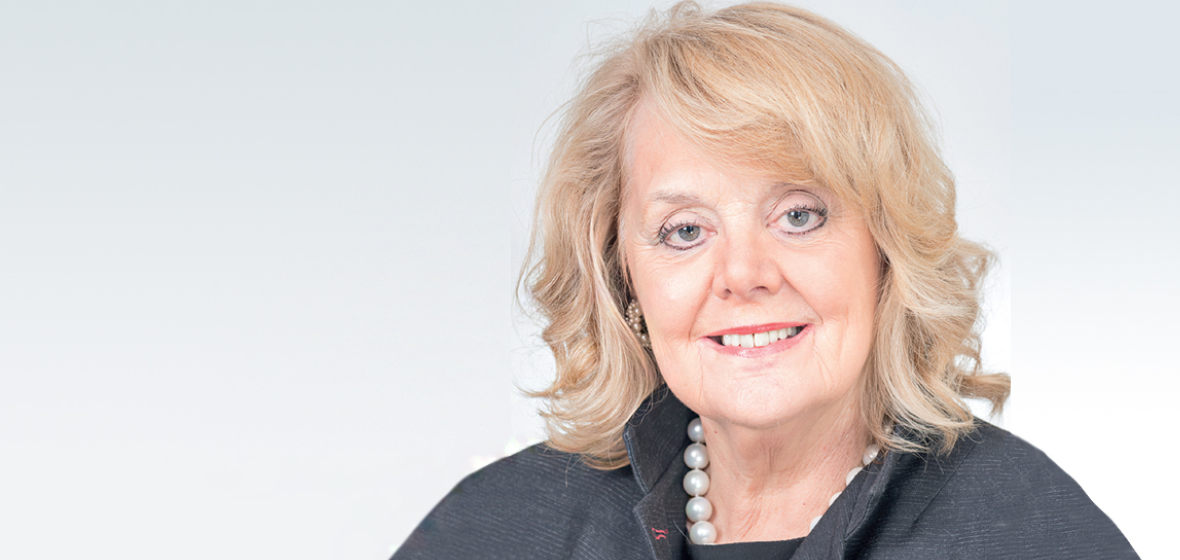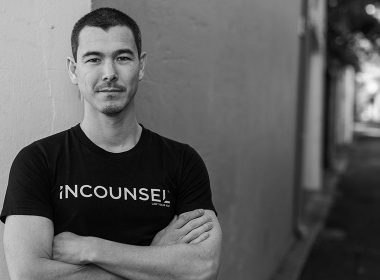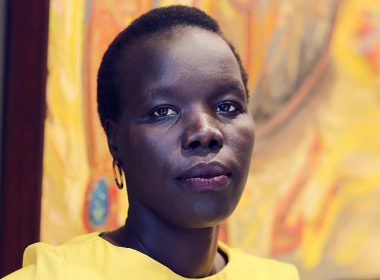With a soaring caseload, the NSW District Court had no time to waste in transitioning to virtual courtrooms. LSJ listened to a virtual sentencing by Judge Robyn Tupman before the experienced criminal judge dialled in for a lunchbreak chat.
Sometimes, the rule of law is held together by a single post-it note. In this case, NSW District Court Judge Robyn Tupman is navigating a judge-alone virtual pre-trial hearing of a sexual assault matter.
The legislation is clear: complainants must not have to look at the accused while giving evidence or being cross-examined.
But in the era of the COVID-19 pandemic, virtual courtrooms are designed so that every party – from the judge, associate and court officer to the accused, prosecutors, defence counsel and witnesses – must be logged in and able to see and hear the unfolding proceedings using their microphone and camera functions.
“In the jail facilities, you can mute the microphone but you can’t turn the camera off,” Judge Tupman explains.
“So the accused in this case was on screen and so too was the complainant. To continue in this way would be in contravention of the legislation.
“And then on screen, I can see the accused putting his hand up, and once he had our attention, he knocked on the door of the AVL suite and had a guard pass him a yellow post-it note. He placed the post-it note over the camera, so he could not be seen.
“It was a low-tech solution to a high-tech problem. And the case was able to proceed.”
Traditionally on these pages, LSJ would meet the interviewee over lunch – usually a restaurant or café close to chambers and courts. In the current era of strict social distancing, Judge Tupman instead calls during a lunch break to discuss her experiences of the transition to virtual court.
With a wealth of criminal law experience, Judge Tupman is on the board of directors for the International Association of Women Judges, and since 2015 has helped spearhead the state’s child sexual offence evidence pilot project.
She says the scheme, which involves the use of audio-visual link [AVL] and pre-recorded evidence to support child complainants through the trial process, helped her adapt to dispensing justice almost exclusively virtually.
“The only difference [to normal hearings] is that the courtroom is empty, and it seems odd that the courtroom is empty,” she says.
“On a normal day, there might be two or three matters, so all of the people and parties involved in that case, plus people in the public gallery observing, journalists … and of course we are missing the groups of schoolchildren who often come towards the end of term for Year 10 or 11 legal studies.”
Before speaking with LSJ, Judge Tupman invited the writer to virtual court to hear her sentencing remarks in the case of a man who pleaded guilty to charges of sexual intercourse without consent and indecent assault.
We have to make this work, and that is not just because the criminal justice system is also the third branch of government. We have to make this work for everyone who is charged with a crime or is a victim.
It is one of many matters she has overseen since the spread of COVID-19 and the enforcing of social distancing requirements forced the shut down of physical courtrooms across the state.
Although the parties experienced an initial delay and frustration in connecting to the matter, the case was finalised.
“Life is full of frustrations. We have often had delays in court because the truck arriving from the jails is late, or a witness will have been caught up with a train delay. This is really just an electronic version of those frustrations,” she says.
“We have to make this work, and that is not just because the criminal justice system is also the third branch of government.
“We have to make this work for everyone who is charged with a crime or is a victim.”
She says it is also imperative that lawyers do not lose their workload.
“Solicitors have been fantastic, both the DPP solicitors as well as the ones instructing the accused,” she says.
“I was previously a solicitor in private practice and a barrister. I know what it’s like to make a living in the law and we need to do what we can to make sure their work remains open and safe.”
She singles out one practitioner, who assisted a vulnerable client in connecting to the virtual courtroom from his parents’ bedroom for a fitness-to -plead hearing, for particular praise.
“Every branch, from the solicitors to the barristers to the bench, is doing their bit to keep the criminal justice system intact until we come out the other side of this, with perhaps some lessons learned,” she says.
To date, both the Downing Centre and John Maddison Tower complexes have recorded no positive cases of COVID-19 and, critically, none have been recorded across the state’s jails.
“I had one bail application adjourned because the accused presented with flu-like symptoms, so they decided he wouldn’t be taken to the AVL suite where all the video cases are being held, and instead isolated so he could be tested if necessary,” she says.
“So far we have been very lucky that there have not been any confirmed cases in our complex.”
She is particularly thankful to the associates, court officers and registry staff continuing to work under trying conditions and often “waving a magic wand” to keep virtual court in session.
“There are technical hitches,” she says, due to the volume trying to access the virtual portal that can admit relevant parties in up to 40 cases across the local and district courts; matters that normally would unfold inside the walls of the Downing Centre, the state’s busiest justice complex.
“On the whole, it has been very good and hats off to the people who sorted [the system] so quickly,” says Judge Tupman.
“I do think we have been used to dealing with AVL in the district courts – but this process has been trial and error and, sometimes, more error than trial.”
She does believe “it is more tiring compared to a day in a courtroom”.
“With the virtual system, you have to keep your eyes fixed on the screen all the time to make sure that everyone can hear you, and that if they drop out you have to dial them back in,” she says.
She and her colleagues on the bench have been sending around email tips, “sharing their experiences or things they have found helpful”.
While it is clear the court is doing its best to keep the wheels of justice thrumming, it remains unclear as to how jury trials could ever operate under a virtual system.
“The major disruption is that we can’t do jury trials,” Judge Tupman says.
“At present, we are doing as many other matters [bail applications, judge-alone trials and sentencings] as possible until the jury issue is resolved in due course.
“Currently, we are setting dates for [jury] trials in September with our fingers firmly crossed. In the meantime, there is a lot of other work that can be brought forward to settle our focus on.”




